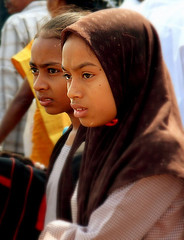It only took 24,923 people to be raped for India to realise change was sorely needed.
That’s the number of reported rapes in 2012, but estimates put the figure between 50 and 200 times higher, making it a country with one of the world’s highest rape rates.
Three months after a 23-year-old student died after being gang-raped and beaten in Delhi, the country’s parliament voted to introduce new laws allowing the death penalty to be imposed in the “most serious” cases of rape, such as gang rape. But while a country where a woman is raped every 22 minutes has taken a small step forward, other places around the world remain mired in archaic and sexist opinions on rape and sexual assault against both men and women.
Japan
The fact that this place introduced women-only carriages in response to women complaining they were constantly harassed and groped on crowded public trains speaks volumes. With its own horrific history of rape being used as a crime of war, it would make sense that rape is a particularly sensitive topic. However the law offers a very narrow definition of rape, only recognising male on female assault, and only vaginal penetration by a penis. The level of physical violence is also considered, with many victims asked why they didn’t fight their attackers harder. An Australian woman who claimed she was raped near the Yokosuka U.S. Navy base in 2002 says she regrets ever reporting it to the Japanese police, such was the level of disbelief she encountered.
China
With an already high execution rate, it’s little surprise that China was one step ahead of India in allowing the death penalty to be used as a punishment for rape. Again though it does not recognise same-sex rape, or rape within marriage, and it was revealed that a loophole in the law was allowing many statutory rapists to walk free, if they said they “didn’t know the child was under the age of 14”. The case of the teenage son of a prominent general accused of taking part in a gang-rape has many suspecting the 17-year-old will face a significantly less harsh punishment than if he came from a less well-off socio-economic background.
USA
In a place where the fight over women’s bodies is a daily talking point, the laws around rape are just as confusing. There is no national consensus on what actually constitutes “rape”, instead each state has its own varied definition. California recently closed a loophole that allowed the conviction to be overturned of a man who had raped his friend’s girlfriend while pretending to be her boyfriend, because the law only sees impersonating a legal spouse as criminal. As with many socially conservative countries, the US has its own chequered history with rape cases. The case of a teenage girl who alleged she was raped by members of a popular local football team after passing out a party, caused a nationwide discussion on consent, “ruining” the lives of those accused, and if it was just “boys will be boys”. Politicians also regularly cause a stir, such as Republican Senator Todd Akin commenting that in cases of “legitimate rape” women can biologically stop themselves from becoming pregnant, and in 31 states there are laws allowing rapists to challenge for access to the children borne of their crimes.
Dubai
There have been many highly-publicised cases of women who have reported being victims of rape in the United Arab Emirates state, including that of a young Norwegian woman working in the country being sentenced to 16 months in prison after reporting being raped by a colleague. Dubai’s extremely conservative justice system instead found her guilty of drinking alcohol and having sex outside of marriage, unsurprising given under Dubai’s Sharia law system allegations of rape can only be proven by having four male Muslim witnesses who will attest to the act, or a confession from the perpetrator. Australian woman Alicia Gali spent eight months in gaol after claiming she was gang-raped in 2008 at the hotel she was staying at, eventually receiving a pardon. Other foreigners have received gaol terms for such innocuous behaviour as kissing and holding hands in public.
Afghanistan
Similar to Dubai, Afghanistan prefers to charge victims of rape with adultery or sex outside of marriage, and marital rape is apparently “non-existent”. This deeply religious country does have legislation designed to protect some women’s rights, but the “Law on Elimination of Violence Against Women” has not been ratified by the Afghanistani parliament, and could potentially be reversed by future governments. Many rape victims are forced to marry their rapists in order to preserve the “honour” of their families, or killed by their families to save face. Child rape and forced marriages are also illegal, but enforcement of these laws is selective at best. Stonings of these “disgraced” women are commonplace, as is self-immolation.
Australia
All Australian states and territories consider forcible sexual penetration of both genders as rape, and reforms of Victorian laws in 2007 saw a number of convictions overturned. Only Tasmania demands the penetration must be by a penis for rape to have occurred. Out of the 2,044 rapes reported in Victoria in last year, the case of Jill Meagher received the most media attention. The 29-year-old ABC employee was attacked in Brunswick less than five minutes away from her home. Her death prompted the Victorian Parole Board to pass new laws for criminals who break their parole, after it was revealed Jill’s murderer was on parole at the time for similar offences. Like with India, a series of gang-rapes across Sydney in 2000 lead to the introduction of tougher gaol sentences for those convicted, but the country’s conviction rates for rape still remain low. One of the most famous Australians, Wikileaks founder Julian Assange, has been hiding out in the Ecuadorian embassy in London for the past 15 months, after being accused of raping two women in Sweden.






